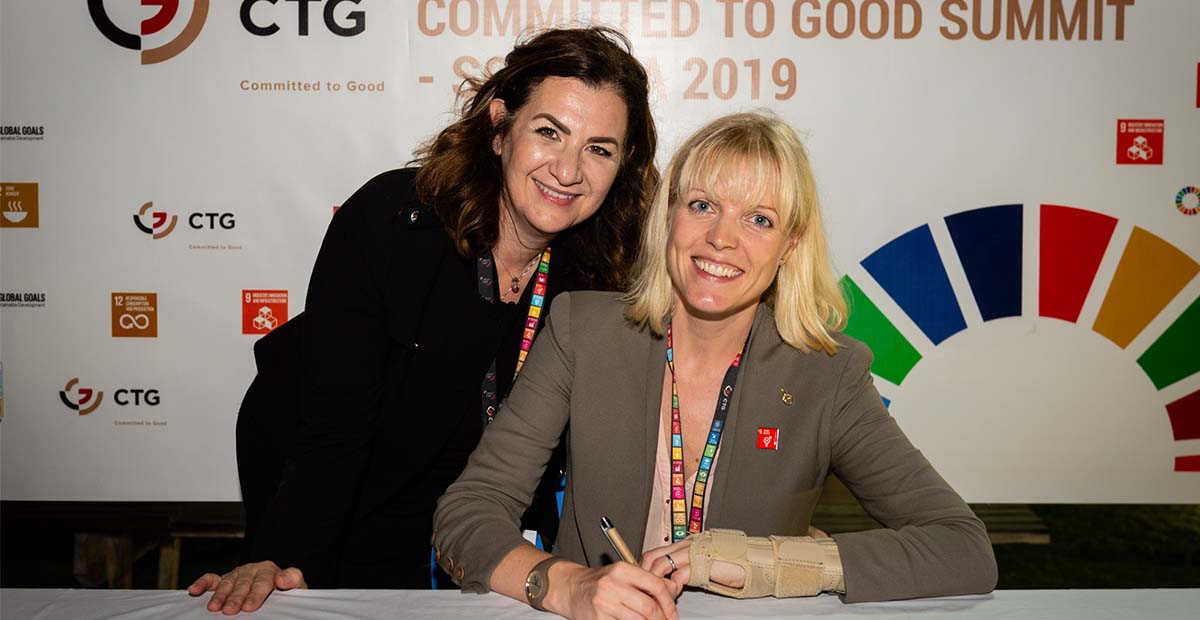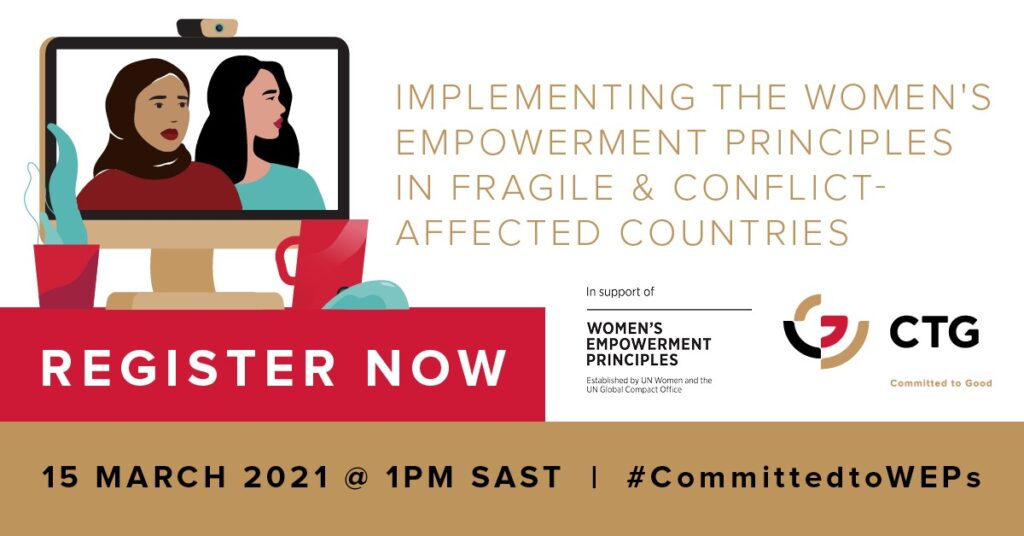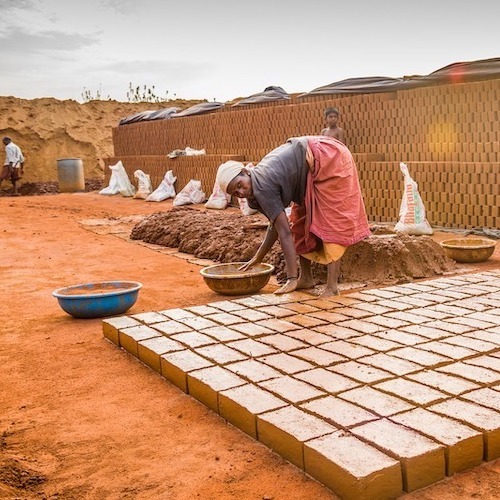Committed to Women’s Economic Empowerment in Conflict Settings: Why we signed the WEPs
Four years ago, on International Women’s Day, we were proud to sign the United Nations Women’s Empowerment Principles (WEPs), which provide a framework to help companies empower women in the workplace, marketplace, and community.
Part of a community of over 4000 WEPs signatories, our commitment to gender equality at CTG starts at the top and filters down throughout the entire organisation – everyone within the organisation from field teams to leadership stands behind our goal.
Why we signed the WEPs

1. To formalise our commitment
CTG’s CEO, Alice, met Salwa Nassar on a work trip to Gaza. A consultant Engineer at the time, Salwa pointed out to Alice that through CTG she had the potential to have a transformational impact on the lives of women across fragile and conflict-affected countries. This conversation stuck with Alice and set the foundations for her unfailing commitment to Gender Equality.
The launch of the Sustainable Development Goals in 2015 provided CTG and other businesses with the framework to take action and responsibility for sustainable development. Not long after, an idea was born – Female First.
Female First’s pledge: by 2030, 30% of our consultant roles will be represented by women
But just saying we were committed to SDG 5 (Gender Equality) wasn’t enough. We couldn’t stop there, so we made a public pledge and signed the WEPs, to formalise our commitment to gender equality.
2. To create a framework for advancing women’s empowerment
The WEPs are a very clear framework to help businesses promote women’s empowerment and gender equality within their organisation. The seven principles can be seen as seven simple steps that companies can take to promote gender equality. They also provide useful resources to help organisations get kickstarted on adopting a gender-responsive approach to business. Examples include:
- The Gender Gap Analysis Tool, a self-assessment that highlights company gender equality successes and areas for improvement, covering a variety of checkpoints.
- WEPs Action Cards also highlight crucial actions companies can take to advance progress in specific areas related to gender equality such as equal pay for work of equal value.
- Regular webinars offer case studies from companies who have been successful in their journey, case studies which showcase initiatives such as gender responsive procurement, sexual harassment policies, and mentoring in the workplace.
3. The benefit of gender equality
This is perhaps the most obvious reason, and there are many benefits related to promoting gender equality. Amongst those reasons is that a gender equal workforce creates a more cohesive and productive workforce. Another reason is women’s empowerment in the workplace simulates economic growth, which is particularly important in countries with higher unemployment rates and less economic opportunity. From a social perspective, gender equality and striving to create workplaces that are safe for all, prevents violence against women and girls which is a particularly pervasive issue in fragile contexts.
In the case of CTG, the efficiency and success of the development projects we are implementing depend on having equal representation of women as well.
4. WEPs as a conversation starter
The WEPs have provided a strong point of conversation for CTG in the fragile and conflict-affected countries we operate – by encouraging companies to sign up, we’ve created a community-wide conversation about why gender equality is important and what benefits it brings to the community. A great example of this was our 2019 Committed to Good Summit where our panel discussion on creating an inclusive, rewarding and safe workplace lead to a public WEPs signing which saw as many as 16 Companies taking the first step to signing up to the WEPs.
Through her leadership, Alice has encouraged over 100 CEOs to commit to the WEPs, and several of CTG’s key partners and suppliers have signed up as we continue to encourage the rest of our supply chain.

Celebrating the companies who have taken the first step to adopting the Women’s Empowerment Principles, including our sister companies Hart International and Enigma Alliance.
Why other companies should sign up to the WEPs
The initiative itself has created a global community of companies who are all committed to gender equality and women’s empowerment. The WEPs allows companies to showcase their commitment publicly. In countries like Somalia and the other fragile and conflict-affected countries where we operate, if a local company signed the WEPs it would give them the opportunity to receive recognition for their commitment on an international platform – providing them value through membership and participation.
Case Study
In many fragile countries, strict norms of sex-segregation exist, which restrict men’s access to women, children and their homes when they are not related. This means there are aid and development projects, such as social mobilising projects, that can only be done by women. For example, a male working on a vaccination campaign who knocks on a door where a woman answers, will be unable to administer his work if, in accordance with tradition, she is unable to speak with him. Therefore, women are more appropriate for roles requiring community engagement when they are practiced in countries such as Afghanistan or Pakistan that exercise these customs.
Take the first step, it’s easy, straight forward, and all you need is leadership commitment from the top. Sign up to the WEPs.
Join CTG’s webinar on 15 March | REGISTER HERE

For more detailed instructions on how to register for this event, download this guide



